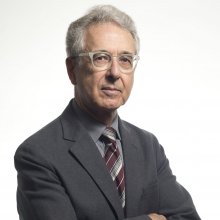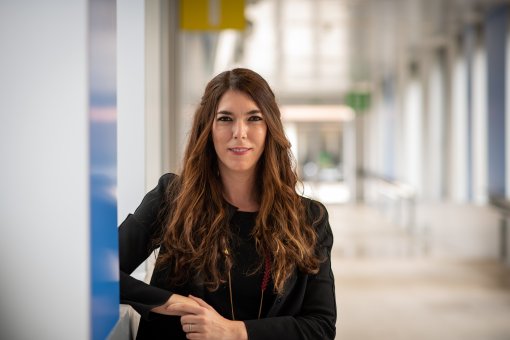Images
Participants


Contact

The EU’s Horizon 2020 Programme awards 500,000 euros to the project “European Academy for Biomedical Science” (ENABLE) to allow young scientists organise a new format of international symposia designed to strengthen their future.
In 2017, Barcelona will host the first ENABLE conference. This event will be followed by annual events in Copenhagen (2018), Nijmegen (2019), and Milan (2020). The cities correspond to the seats of the research centres that participate in ENABLE.
The initiative seeks to promote excellence in the biomedical sciences in Europe, strengthen scientific careers, and bring biomedicine closer to society.
From July 2016 until 2020, four European cities, namely Barcelona (Spain), Copenhagen (Denmark), Nijmegen (the Netherlands) and Milan (Italy), will host (one each year) a 3-day international symposium on biomedicine organised by and for young biomedical scientists. Entitled EuropeaN Academy for BiomedicaL SciencE (ENABLE) and coordinated by the Institute for Research in Biomedicine (IRB Barcelona), this project has received 500,000 euros through the Science with and for Society, “Celebrating European Science” section of the EU’s Horizon 2020 Programme.
The main aim of ENABLE is to provide training opportunities for the next generation of leading European scientists working in biomedicine, to set up a network of young researchers that is sustainable beyond 2020, and to engage in active dialogue with society.
The following European centres participate in ENABLE: the Institute for Research in Biomedicine (IRB Barcelona); the Radboud Institute for Molecular Life Sciences (RIMLS) in Nijmegen, the Netherlands; the Novo Nordisk Foundation Center for Protein Research (CPR) in Copenhagen, Denmark; and the European School of Molecular Medicine (SEMM), in Milan, Italy. The fifth partner involved in the project is Scienseed. Based in Madrid, this company specialises in science communication, and it is at the forefront of public outreach activities in biomedicine—a topic that carries particular importance in the ENABLE project.
“It is inspiring and I feel fortunate to be part of ENABLE,” says Anita Riplinger, a PhD student at CPR, one of the members of the first organising committee of the 2017 event in Barcelona. “What I really love about ENABLE is that it emphasises and fosters the distinct facets of scientists: research excellence, knowledge exchange, and social responsibility”.
HOW ARE FUTURE LEADERS TRAINED?
The ENABLE gatherings will bring together renowned leading scientists, PhD students and postdoctoral fellows from around the world in a European setting. The events will provide a forum in which to discuss the most interesting scientific breakthroughs and cutting-edge techniques, with the view to further discoveries in biomedicine and personalised medicine.
Each ENABLE symposium will also organise activities and workshops related to scientific careers, covering the essential skills needed by a scientist, as well as showcase employment opportunities in Europe. Finally, ENABLE will engage the public through outreach activities aimed at society at large, and relevant patient stakeholders. In addition, special attention will be given to primary and secondary school students, with the aim to stimulate interest in research careers.
Each symposium will have an organising committee formed by PhD students and postdoctoral fellows belonging to the participating centres, and work will start on event preparations at least one year ahead. The ENABLE project will be officially presented in Barcelona this autumn, coinciding with the annual retreat organised by PhD students at IRB Barcelona. This gathering seeks to bring together young scientists from the four centres to discuss the science done in each and to plan the first ENABLE symposium, which will be held in Barcelona in November 2017.
Joan J. Guinovart, director of IRB Barcelona, emphasizes that, “ENABLE provides an excellent opportunity to present the potential of Europe in biomedicine and of Barcelona as a hub in this field, thus emphasising its growing importance in producing and attracting future scientific leaders”.
Who are the 5 ENABLE partners?
INSTITUTE FOR RESEARCH IN BIOMEDICINE (IRB BARCELONA)
IRB Barcelona is a world-class research center devoted to understanding fundamental questions about human health and disease. It was founded in October 2005 by the Government of Catalonia and the University of Barcelona. The Institute’s missions include conducting multidisciplinary research of excellence at the unique interface between biology, chemistry and medicine, providing high-level training in the biomedical sciences to staff, students and visitors, driving innovation through active technology transfer to the benefit of society, and actively participating in an open dialogue with the public through a series of engagement and education activities.
SCIENSEED
Scienseed is a science communication agency based in Madrid, Spain. The company specializes in the development of communication strategies to maximize the impact of science in the general public and other relevant sectors, using video, graphic design and animation, videogames, social media campaigns, public engagement and training activities. Since 2014 Scienseed has been collaborating with research institutions and innovative companies to make their science visible. The company is currently part of three large European consortia.
www.scienseed.com /@scienseed / www.facebook.com/scienseed
RIMLS: Today’s molecules for tomorrow’s medicine
The mission of the Radboud Institute for Molecular Life Sciences (RIMLS) is to achieve a greater understanding of the molecular mechanisms of disease. By integrating fundamental and clinical research, the institute obtains multifaceted knowledge of (patho)physiological processes. To have a significant impact on healthcare, these findings are translated into diagnostics, therapeutics and personalized treatment strategies. The multi-disciplinary approach to research in molecular life science is reflected in an established RIMLS Graduate School with a dedicated 2-year research honours MSc degree in Molecular Mechanisms of Disease and a follow-up 4-year PhD program.
Novo Nordisk Foundation Center for Protein Research (CPR)
Novo Nordisk Foundation Center for Protein Research (CPR) was established at the Faculty of Health and Medical Sciences, University of Copenhagen to promote basic and applied discovery research on human proteins of medical relevance. CPR aims to assemble protein-related technologies with revolutionary potential for understanding the complex wiring of biological systems and disease processes. The vision of the Center is to be the world’s leading center in integrative protein technologies and their application to accelerate understanding of the biological processes underlying health and disease. This is achieved by developing integrated protein technology platforms and management systems for large heterogeneous data to advance the understanding of complex protein networks in fundamental biology and disease, educating the next generation of top-tier protein scientists and becoming an unmatched global partner in protein research.
@NNFCPRAlumni / https://www.facebook.com/NNFCPRAlumni
EUROPEAN SCHOOL OF MOLECULAR MEDICINE (SEMM)
SEMM is a private foundation established in 2001 by a joint ministerial decree of three Italian Ministries, Health, Treasure, and Education, Scientific and Technological Research. The mission of the Scuola Europea di Medicina Molecolare (SEMM) is to promote the training and research of young scientists within emerging sectors of biomedicine. SEMM operates within research centers of excellence bridging together higher education and front-line research training. Science covers virtually every aspect of modern Cell Biology and Molecular Biology, both from the basic and applied research points of view. SEMM manages in agreement with the University of Milan and Naples, a PhD program in Systems Medicine which includes 5 curricula: Molecular Oncology, Human Genetics, Computational Biology, Medical Nanotechnology and Foundations of the Life Sciences Bioethics and Cognitive Sciences and a post doc program SIPOD.
About IRB Barcelona
The Institute for Research in Biomedicine (IRB Barcelona) pursues a society free of disease. To this end, it conducts multidisciplinary research of excellence to cure cancer and other diseases linked to ageing. It establishes technology transfer agreements with the pharmaceutical industry and major hospitals to bring research results closer to society, and organises a range of science outreach activities to engage the public in an open dialogue. IRB Barcelona is an international centre that hosts 400 researchers and more than 30 nationalities. Recognised as a Severo Ochoa Centre of Excellence since 2011, IRB Barcelona is a CERCA centre and member of the Barcelona Institute of Science and Technology (BIST).







